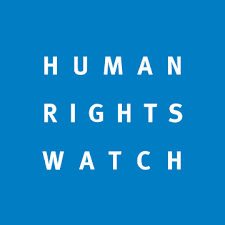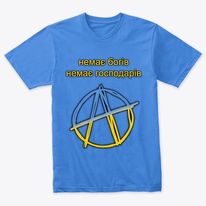
Global Commitment to Accountability Should be Model for Other Crises
From: Human Rights Watch
United Nations Security Council members should use an informal meeting on accountability for serious crimes in Ukraine to highlight the importance of impartial justice and coordination of a wide range of international accountability efforts, Human Rights Watch said today.
Since February 24, 2022, Russian forces have battered Ukrainian towns and cities with airstrikes and artillery, killing and injuring thousands of civilians. They have conducted indiscriminate attacks that have hit residential buildings as well as schools and hospitals across Ukraine, leaving a trail of death and destruction. In areas they have occupied, Russian forces have committed apparent war crimes, including summary executions, torture, and rape.
“With the death toll increasing in Ukraine and frequent reports of new war crimes, the international community has an urgent responsibility to send a clear message to those who would commit war crimes that wanton slaughter could one day lead to a prison cell,” said Ida Sawyer, crisis and conflict director at Human Rights Watch. “Governments, international organizations, and civil society need to cooperate to ensure effective, impartial justice for the atrocities being committed in Ukraine.”
On April 27, Albania and France will convene an “Arria-formula” meeting, an informal gathering of Security Council members, to discuss how the UN can support and coordinate accountability efforts for serious crimes in Ukraine. Participants will include the International Criminal Court (ICC) prosecutor, Karim Khan; the Albanian foreign minister, Olta Xhaçka; the Ukrainian prosecutor general, Iryna Venediktova; the UN high commissioner for human rights, Michelle Bachelet; Amal Clooney of the Clooney Foundation for Justice; and the Human Rights Watch crisis and conflict director Ida Sawyer.
In recent weeks, the town of Bucha has become synonymous with the word “atrocities.” But similar violations and apparent war crimes have taken place elsewhere in Ukraine. Human Rights Watch researchers have traveled to villages and towns previously occupied by Russian forces and gathered scores of accounts from witnesses of Russian forces committing torture, enforced disappearances, summary executions, pillaging, sexual violence, and other crimes. Russian forces have also repeatedly used cluster munitions and other explosive weapons in densely populated Ukrainian cities and towns.
In Mariupol, tens of thousands of civilians have been trapped as their city has been turned into rubble amid persistent shelling, leaving people with little or no food, water, medicine, heating, or means of communication – and no safe way to escape. Many have apparently been forcibly transported to Russia, which amounts to a war crime. The number of civilians killed in Mariupol remains unclear, but local officials estimate that 20,000 may have died. Evidence has emerged that Russian forces buried some of the victims in at least two mass grave sites in neighboring villages.
Children, older people, and people with disabilities are generally disproportionately affected during conflicts, Human Rights Watch said.
Governments and international judicial bodies have initiated a number of accountability efforts in response to the crimes in Ukraine. On March 2, the ICC prosecutor announced the opening of a formal investigation, while authorities in countries including France, Germany, Lithuania, and Sweden have opened their own criminal investigations under the principle of universal jurisdiction. On March 4, the UN Human Rights Council voted to establish an international commission of inquiry to document war crimes and human rights abuses.
Ukrainian authorities are also conducting their own criminal investigations. To support these efforts, many governments have offered Ukraine assistance to bolster its judicial capacity. Meanwhile, domestic and international civil society groups have been vigorously working to document violations as they occur.
Ukrainian and international civil society organizations have an essential role to play in pursuing justice in Ukraine, including in documentation, capacity building, research, and advocacy, as well as with outreach to victims and affected communities. The authorities should cooperate with those organizations to inform ongoing judicial processes, Human Rights Watch said.
While Russian Forces have committed the majority of apparent war crimes, there have also been reports of Ukrainian violations of the laws of war. Human Rights Watch has urged Ukrainian authorities to investigate alleged abuse by Ukrainians forces of Russian prisoners of war. Ukraine should also investigate allegations that its forces have used banned cluster munitions as reported by The New York Times and hold accountable anyone responsible for using these weapons. The laws of war apply to all parties to the conflict, and Ukraine has made a public commitment to adhere to those norms.
While Ukraine has accepted the court’s jurisdiction over alleged crimes committed on its territory since November 2013, it is not an ICC member. Ukraine should also ratify the ICC treaty and formally become a member of the court. National and international civil society groups have for years been pressing the Ukrainian government to join the court.
Ukraine should also fully align its national legislation with the ICC treaty and international law. Ukrainian President Volodymyr Zelensky should sign into law a bill adopted by Ukraine’s parliament in May 2021 that could help authorities prosecute war crimes and crimes against humanity domestically. Harmonizing national laws with international law is critical to strengthening the domestic justice system and rule of law, Human Rights Watch said.
All of those engaged in such investigations should cooperate and collaborate to ensure effective inquiries, Human Rights Watch said. They should preserve evidence to internationally accepted standards and safeguard crime scenes. Governments should also support Ukraine in developing and expanding the capacity of its own investigators, prosecutors, and courts, and building a framework to support victims and protect witnesses.
UN member countries advocating for justice and accountability should ensure that justice is not sidelined in any peace negotiations. It is important for the long term not to compromise on justice, Human Rights Watch said.
The informal Security Council meeting highlights the body’s paralysis on Ukraine due to Russia’s ability to veto substantive Council action. On February 25, Russia blocked a resolution calling for ending its invasion and withdrawing all Russian forces. As a party to the conflict, Russia should have abstained from that vote under Article 27 (3) of the UN Charter, but it did not.
Since then, the UN General Assembly has adopted three resolutions condemning Russia in an Emergency Special Session on Ukraine, including one suspending Russia’s membership in the UN Human Rights Council. The special session was convened in accordance with the 1950 “Uniting for Peace” resolution, which enables the General Assembly to take up matters of international peace and security when one or more veto powers is preventing Council action.
Security Council member states – and High Commissioner Bachelet – should use the April 27 meeting to demonstrate the UN’s continued relevance by voicing support for further action by UN bodies like the Human Rights Council and General Assembly, where Russia has no veto power. They should express support for the ICC and human rights organizations gathering evidence of war crimes.
It is important to remember that international justice is not limited to the conflict in Ukraine. The support for accountability efforts for Ukraine should become a paradigm for the international community’s response to crises and conflicts elsewhere in the world, such as in Ethiopia, Myanmar, Palestine, and Yemen.
“The international community’s rush to support justice and accountability for the grisly crimes committed in Ukraine should be the rule and not the exception,” Sawyer said. “If the UN, ICC, national governments, and civil society can work together to document and preserve evidence of the crimes in Ukraine, it could serve as a model for the future of international justice.”

Check Out Our Tee Shirt Fundraiser For Doctors Without Borders In The Ukraine!







Comments